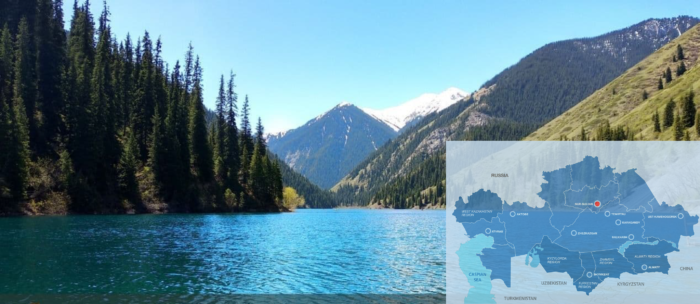NUR-SULTAN – The Kazakh Ministry of Ecology, Geology and Natural Resources has announced plans to develop the Zhasyl Kazakhstan (Green Kazakhstan) project and a new project on water resources management, according to a Feb. 2 report by the ministry’s press service. The project planning stage is set to be completed by July.
The objective of the Zhasyl Kazakhstan project is to reduce pollution levels in the cities of Almaty, Aktobe, Atyrau, Balkhash, Zhezkazgan, Karagandy, Nur-Sultan, Shymkent, Temirtau and Ust-Kamenogorsk.
According to the Minister of Ecology, Geology and Natural Resources Magzum Mirzagaliyev, the project will consist of seven main sections – water quality improvement, reducing air pollution, waste management, conservation of biodiversity, green living, energy efficiency, eco-education and improvement of environmental awareness.
It is expected to decrease the volume of wastewater discharge, increase the share of waste processing from 18 percent to 35 percent, and reduce the energy share of GDP by 2025.
“It has been proposed to create an interactive map on the ministry’s geoportal to conduct public monitoring on the planting of 2 billion trees. Active monitoring of forest fires and illegal logging is now available on this geoportal,” said Mirzagaliyev.
A successful state program on water resources management is planned to be converted into a national one. “We have identified six main areas of work – the improvement of interstate water relations, digitalization, accounting and monitoring of water resources, water conservation, and the restoration of irrigation systems and facilities,” added the minister.
The ministry will develop a new version of the water code, update the legal framework and focus on the training of specialists in the water industry. The new reservoirs will be built in the Zhambyl, West Kazakhstan, Turkestan, Almaty and Kyzylorda regions. Some 31 reservoirs will be built from 2025 to 2030.
After wide public discussions, Kazakhstan adopted the new Environmental Code that will enter into force on July 1st, 2021.
On Sept. 23, 2020, President Kassym-Jomart Tokayev said that “Kazakhstan is very vulnerable to the various effects of climate change” at the 75th session of the United Nations General Assembly. The consequences of the Aral Sea and Semipalatinsk nuclear test site, the melting of glaciers, and desertification are among several of the major environmental issues for Central Asia as well as for other nations.
Due to this, Kazakhstan is on track to meet the Paris Agreement 2030 targets and to develop a decarbonized economy. The government has plans to reduce greenhouse gas emissions by 15 percent by 2030 through an economic overhaul and industrial modernization.

